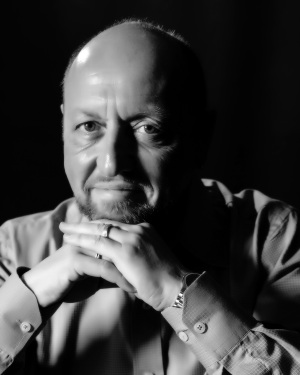‘Faux-tonement’ trend takes off for 2022 Jewish high holidays
“I would like to ask that you forgive me for anything I might have done to you this past year,” Rami Ungar, 26, who works for a supply company and writes horror in his free time, posted on both Twitter and Facebook last week.
“That being said, I might still put you in one of my stories if you really crossed the line,” Ungar, 26, who lives in Columbus, Ohio, added jokingly.
According to the Jewish calendar, the month of Elul (roughly September) is a time when Jews are supposed to atone for their sins and ask for forgiveness from anyone they may have harmed during the past twelve months.
The idea is to start the new year, marked by the holiday of Rosh Hashanah, with a clean slate, but it can be done anytime before Yom Kippur. Historically Jews practicing t’shuvah, as this tradition is called, make their apologies face to face, or over the phone. They reach out to people they actually remember hurting.
Rami Ungar posted on both Twitter and Facebook last week.
But in these fast-paced, modern times, some are turning to social media instead, making blanket appeals for forgiveness. Some Jews and rabbis feel this is a cop out, a way of avoiding doing the hard work of admitting our errors and looking people we hurt in the eye and asking them for another chance.
“It doesn’t seem very sophisticated to me, and I think it makes religious people look silly,” said Rabbi Asher Meza, 44, of Fort Lauderdale, Fla.

Meza, himself no stranger to social media — he recently posted a video on TikTok decrying the practice of “mechila (forgiveness) cold calling” — equated these impersonal, virtual requests to asking someone how they are doing but not listening to the answer.
“These people don’t really want to make amends,” he said. “They just want to put it out there because they are superstitious and think this will protect them for the new year. It feels primitive and it doesn’t feel sincere.”
For Daniella Jacob, 35, a healthcare worker in Great Neck, LI, it’s merely about covering her bases efficiently, which is why she asked everyone she is friends with on Facebook for forgiveness this month.
“I just don’t want to miss anyone,” she said. “I am not in the mood for a bad year, so I want everyone to know I forgive them and I am hoping they will forgive me as well.”
She said she received dozens of comments from people: “People said of course they forgive me even though there is nothing to forgive.”
Still, others say their social media posts have led to deeper, more productive conversations.

Mike Finesilver, 65, who lives in Elizabeth, NJ, and works as a technical paralegal for a large law firm, had a friend from childhood message him privately after a general post.
“Somebody wrote to me and told me about something that happened a long time ago,” he said. “We got on the phone, and I saw where that person was coming from, and I talked to them about it.”
He said he didn’t even know this person felt wronged.
“Social media is just one tool to reach out to people you might not be able to reach otherwise,” he said. “It’s not the be all, end all, but it’s a good place to start.”
Finesilver said he’s had mixed reactions from rabbis who saw messages he posted on Facebook ahead of the high holidays.
“One rabbi messaged me and said, ‘Mike, Facebook, really?’” he recalled. “But I have another rabbi who sent an email to the whole congregation basically saying the same thing [as me].”
Ungar believes social media is the most economical, effective way to repent.
“I just thought that using social media was a convenient way to reach out to as many people as possible,” he said. “There are also one or two people who hold a grudge against me but we aren’t in contact, so I can only hope they see this.”
It is also a way to avoid the least amount of confrontation while going about his duty as a
Jew.
“It prevents any sort of angry communication in case they are not in a forgiving mood,” he said. “Is it a cop out? Maybe. Sometimes you want to forgive toxic people, but you still don’t want to associate with them.”
Read the full article Here


